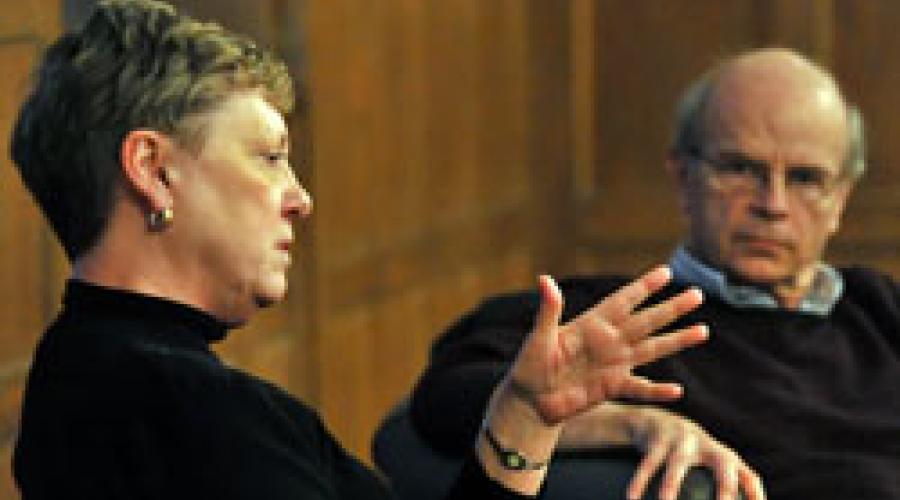
Reaching New Heights
Patricia Friend, committed to helping the United States improve its air transportation system, asked the U.S. Department of Transportation chief to encourage President Barack Obama's appointment of a committee on the topic.
Instead, Ray LaHood created the Future of Aviation Advisory Committee at the transportation department. Friend, along with several CEOs, labor leaders, economists and others, is a committee member.
"He (LaHood) has been wonderful to work with and open to all new ideas," Friend said Wednesday at the ILR School. The aviation committee plans to submit a final report by Dec. 15 with actionable recommendations and a list of issues needing attention.
"The committee agreed that we need more emphasis on education – in science, technology, engineering – and that what is needed is a completely integrated, intermodal transportation system."
Friend, international president of the Association of Flight Attendants – Communications Workers of America, spoke Wednesday with ILR faculty and others about airline- and labor-related issues She also met with students in "Planes, Trains, and Labor Relations: Law & Policy under the Railway Labor Act," a class taught by Lance Compa.
Under Friend's leadership, the association has fought for and won whistle-blower protections for aviation employees and a smoking ban on international flights, and opened the door for occupational safety and health protection for flight attendants.
Recently, the group launched its third effort to organize Delta Airlines flight attendants. It did so under a new National Mediation Board rule that now makes it possible for the vote to pass with only a majority of eligible voters, not a majority of eligible employees. The vote to unionize was defeated by a swing margin of 165 voters out of more than 19,000.
"We are not going to walk away from the thousands of flight attendants who want union representation," Friend said. The association has filed charges alleging unlawful interference by Delta management in the election process.
Issues relating to wages and compensation, especially during a time of "merger mania," have also been an important focus of the association's collective bargaining efforts.
"Like most workers, health care cost is one of the biggest concerns," Friend said. "Airline bankruptcies have devastated pension plans, so we've been working to try and replace those with some kind of retirement benefit."
A former flight attendant with experience in many aspects of union business, Friend said one of the most important lessons as head of the Association of Flight Attendants came from dealing with union staff.
Friend said she has been gaining a "different point of view, learning to sit on the other side of the table and manage staff. We need to negotiate with them, and it doesn't always turn out the way I like, but that’s how collective bargaining works and I accept that."
When asked about the JetBlue flight attendant who gained international attention earlier this year after berating passengers and leaving the plane via the emergency exit, Friend said: "We had sympathy for him. He was bringing tremendous stresses from his personal life to his job. But when he deployed the evacuation slide, it was a step too far – we can’t support that."
She adds, "We have an award-winning employee assistance program, and it's our hope that this kind of program will help identify problems and get someone off the plane before something like this happens."
Friend is retiring from the Association of Flight Attendants at the end of 2010, but will remain active on many boards of organizations that advocate for workers' rights.


